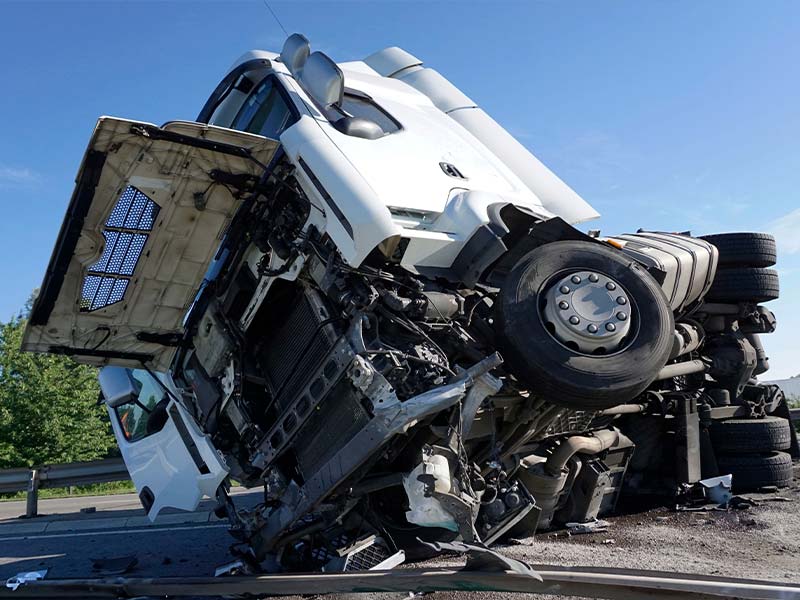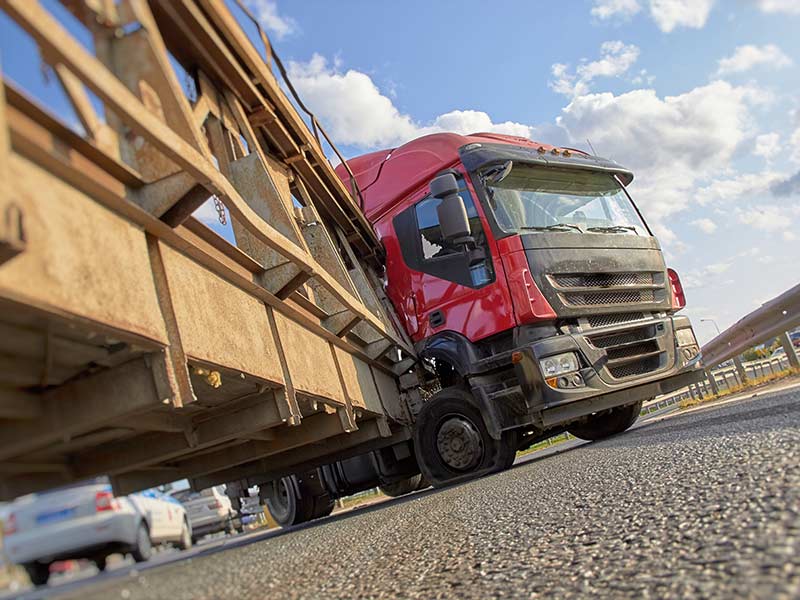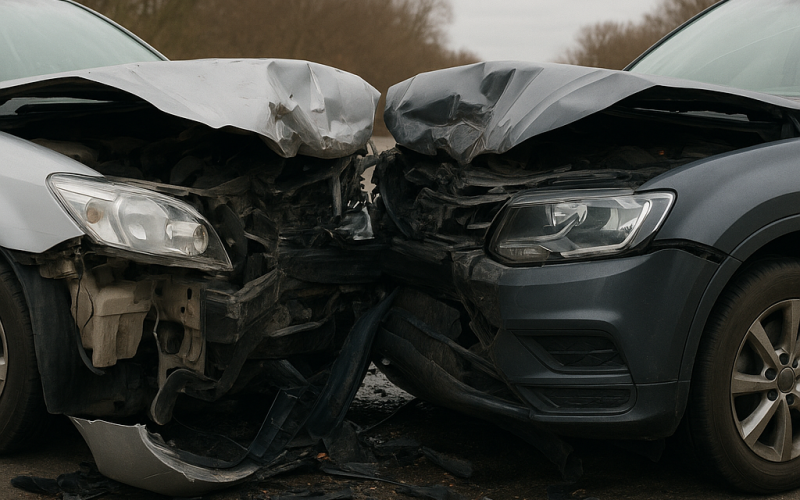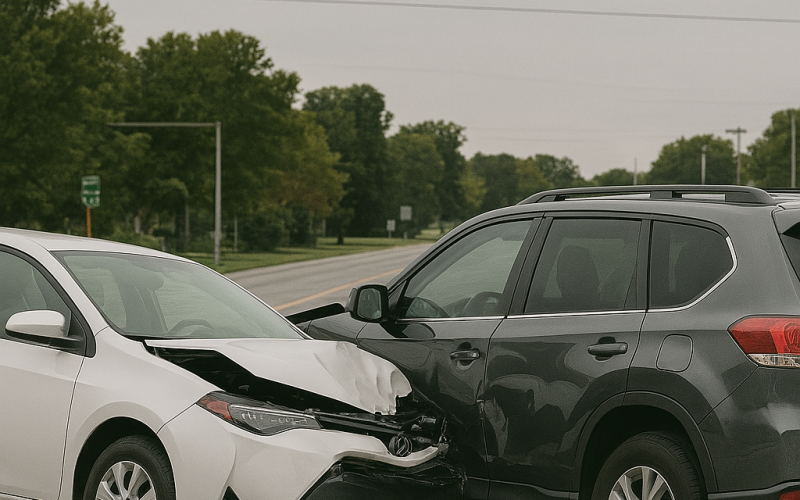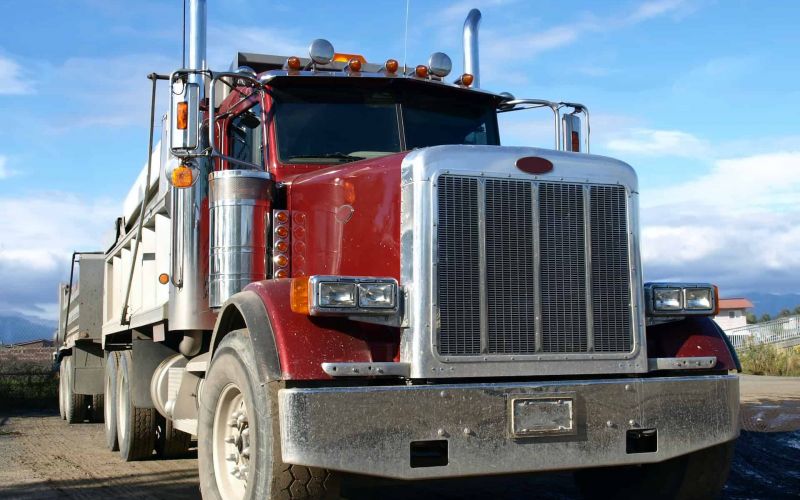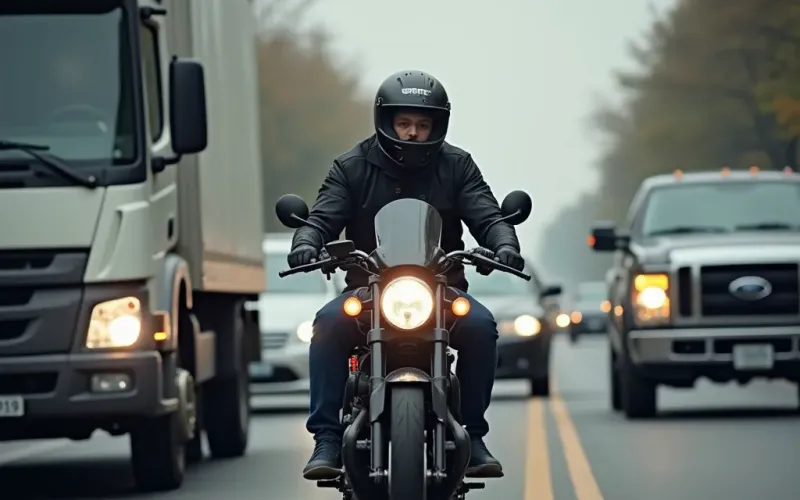What Are the Most Common Injuries in Truck Accidents?
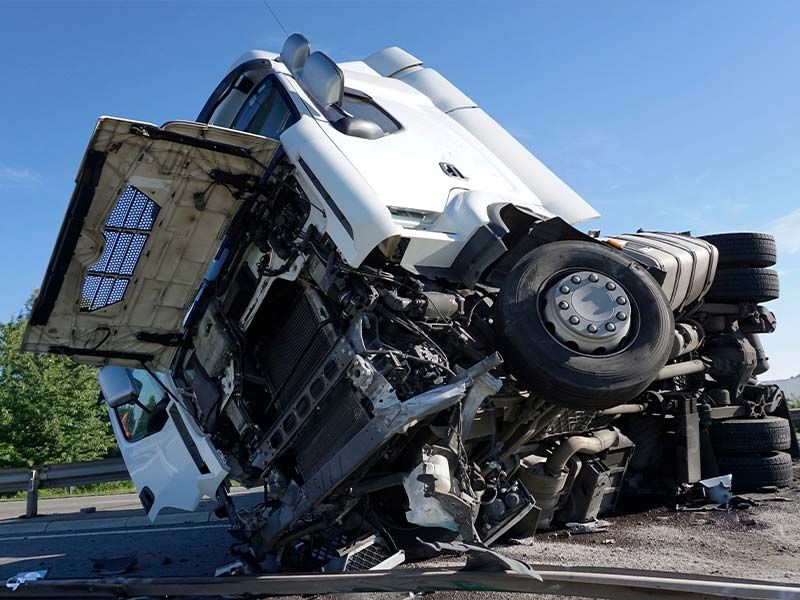


In 2020, South Carolina ranked 10th in the nation for truck accident fatalities. While 132 deaths may seem modest compared to the 643 deaths in the state topping the list, Texas, it is important to remember that South Carolina is much smaller in population and overall land mass. Likewise, our home state ranks 10th in truck accidents per capita. These truck accidents leave devastating injuries and involve multiple liable parties. If you are injured by a semi, learn how a South Carolina truck accident attorney with HawkLaw, P.A. can take care of your costly and time-consuming truck accident case.
How Are Truck Accidents Different from Car Accidents?
Commercial truck accidents are uniquely different from other vehicle accidents. They are caused by different factors, have multiple liable parties, cause extensive property damage, and result in more severe injuries due to the sheer size of semis compared to the other involved smaller vehicles.
With a car accident, the cause is often due to some sort of driver error, such as speeding, distracted driving, or a failure to yield or stop as required. Truck accidents, on the other hand, result due to the size, height, and weight of the big rigs, which make it extremely difficult to make turns or stop quickly.
Trucks can also experience equipment failure and cause an accident. In such truck accident cases, multiple liable parties may be to blame, including the driver and the truck company. Trucks require regular maintenance and check-ups, so they remain safe for the road, and when the driver or company fails to comply, equipment malfunction can occur. Another potentially liable party is the manufacturer of the truck or certain piece of equipment that fails and is found to contribute to the accident.
For these reasons, a truck accident case requires a focus on determining liability, which can be multiple parties. Experienced personal injury lawyers will be able to investigate all circumstances behind the accident, compile various evidence (e.g., driver logs and driving records, etc.), and represent you before the insurance companies and, if necessary, in a lawsuit,
In addition, those involved in an accident with a tractor-trailer can suffer more catastrophic injuries due to the size and weight of a semi. These serious injuries can result in exorbitant medical bills, time away from work, disability, and even loss of life. Truck accident victims and their families will need to seek higher compensation from the insurance company or file a lawsuit to receive what they need and deserve.
What Are the Most Common Causes of Truck Accidents in South Carolina?
While no two accidents are exactly the same, there are common causes for most truck accidents in South Carolina. These causes include driver fatigue, alcohol, speeding, poor training, improper inspection, and unsecured cargo.
Driver Fatigue
Drivers are often fatigued but continue driving anyway to meet deadlines. Fatigue affects their ability to focus, concentrate, and respond to changing road or weather conditions. It can result in drowsy driving, making them even more accident-prone.
Alcohol
Truck crashes can be the result of alcohol use by the driver, which can impair judgment, vision, and more while behind the wheel of a big rig.
Speeding
Speeding is often a major factor in accidents. When a driver of a big rig speeds, it may be to meet strict deadlines or other factors that make them dangerous. Since these big trucks require a greater stopping distance due to size and weight, speeding will limit their capabilities to avoid an accident.
Poor Training
To drive a commercial vehicle, drivers must undergo specific training. This training is essential for knowing the limitations of a big truck, how it works, and ways to avoid an accident in different circumstances. If the training is poor or non-existent in some aspect, accidents can happen.
Improper Inspection
To drive a truck in South Carolina, a driver must first obtain a special commercial driver’s license (CDL), which requires the passing of a physically conducted vehicle inspection test. In addition, rules of the Federal Motor Carrier Safety Administration (FMCSA) strictly require that all drivers perform an inspection prior to each trip, and at the end of their driving day, they must create a new inspection report each time. Drivers must also review previous inspection reports and confirm past repairs have been completed. If the driver fails to inspect or does a quick, improper inspection, problems may exist that contribute to an accident while out on the road.
Unsecured Cargo
When loading, commercial trucks must pay attention to how the cargo is loaded and stored in the trailer. Any unsecured cargo can shift with movement and even fall, knocking the trailer off-balance and resulting in an accident. The driver is responsible for inspecting the trailer and its cargo prior to departure.
What Are the Different Types of Truck Accidents in South Carolina?
The different types of truck accidents most commonly occurring in South Carolina include the following.
Jackknife Accidents
When a truck trailer is fully loaded, it weighs more than the truck cab itself. With sudden braking, the tires may lose adhesion to the road, and the trailer will continue moving forward while the truck cab begins to slow. The forward motion of the trailer then shifts to one side, right or left, with the back end moving laterally. This shifting results in the trailer crossing lanes and entering oncoming traffic in many instances, striking with force anything in its path, including your vehicle. The truck and trailer settle at an angle similar to that of the handle and blade of a jackknife. This is one of the most common types of truck accidents.
Head-On Collisions
A head-on collision results when two vehicles traveling in opposite directions crash into each other. These collisions often occur at high speeds, causing extreme damage. When one of the vehicles is a big rig, the results are often severe and even deadly. Such truck collisions often occur as a result of driver error, speeding, fatigue, distracted driving, or swerving in an attempt to avoid a hazard.
Rollover Accidents
A rollover accident is when a truck turns over. These large trucks are highly susceptible to rollovers due to their higher center of gravity. When they turn a sharp corner, hit something, experience cargo shifting, have a tire blowout, or another event, it can throw off the balance and cause the truck to roll over or flip.
Sideswipe Accidents
A sideswipe accident involves a collision where one motor vehicle crashes into the side of the other vehicle as they drive in the same direction. Common circumstances for this type of accident are the merging of two lanes, blind spots, or improper lane changing.
Underride/Override Collisions
In accordance with federal regulations, large trucks must fasten rear impact guards in the back to prevent cars from sliding underneath if a crash occurs from behind. Unfortunately, these may not always be effective according to the crash testing by the Insurance Institute for Highway Safety, and the standard rear guard can fail to protect a car from an underride, such as when a truck driver stops short.
An override collision is when a commercial truck drives over the top of a passenger vehicle, such as what might occur in a rear-end collision. This type of accident can occur when the truck is unable to stop in time, which can be due to hazardous weather conditions, driver error and negligence, or mechanical failure.
Wide-Turn Truck Accidents
Due to the size and height of tractor-trailers, maneuvering one is more difficult. Making a turn becomes an expansive endeavor, requiring more than one lane or space to accomplish. As a result, the truck driver must often swing wide to make that turn, crossing into the opposite lane or an intersection. This action places motorists in oncoming traffic and side traffic at a higher risk for a crash.
Defective Truck Brake Accident
Brake failure, according to the FMCSA, is the number one cause of big rig accidents. Brake failure may result from a number of issues, such as driver error, unsecured cargo and improper loading, or weather or road conditions. In addition, truck companies or owners may not adhere to the qualification standards set by the FMCSA for maintaining braking systems in order to save money and thus be liable for accidents that occur as a result.
What are the Most Common Injuries from Truck Accidents?
Due to the potential destructive force that a tractor-trailer that is fully loaded, traveling at legal speeds, can exert in a crash, accident victims are at a high risk of sustaining catastrophic injuries.
The most common injuries from truck accidents are often life-altering and even life-threatening and include:
- Traumatic Brain Injuries (TBIs): Head injuries are common in truck accidents with passenger vehicles. A sudden violent jolt, bump, or blow to the head can lead to a traumatic brain injury ranging from a concussion, contusion, hematoma, or hemorrhaging to actual skull penetration.
- Neck and Spinal Cord Injuries: Truck crashes often result in direct damage to the neck and spinal cord of accident victims. Such injuries can lead to partial or total paralysis, altering a person’s life forever.
- Broken Bones: Violent crashes can cause the breakage of any of the 206 bones located in the body. Depending on the severity of each break, medical care and treatments can range from a minor cast to surgery or amputation.
- Severe Burns and Disfigurement: Accidents involving trucks that are transporting fuel or a dangerous chemical can cause various levels of burn injuries. These burn injuries can lead to severe pain, infections, and disfigurement.
If you or a loved one suffer one or more of these injuries, consult with a personal injury attorney.
Truck Accidents: Who is Liable?
In South Carolina, there can be multiple liable parties in a truck accident, which will require diligent investigation and determination by an insurance company and your legal counsel. Liable parties often include any of the following.
The Truck Driver
Commercial truck drivers are expected to follow all safety rules and regulations, which include driving in a safe manner, obeying the rules of the road, and adhering to both federal and state rules that strictly apply to truckers. When the truck driver is negligent in any way, liability for a South Carolina truck accident may fall on them.
The Trucker’s Employer
Trucking companies often employ several drivers. Actions taken while working in the capacity of an employee will, as a result, fall on the employer in many injury cases. If the driver is negligent in any way while performing the job, the employer may be legally liable for an accident victim’s injuries that arose as a direct result of that negligence.
The Shipping Company
Shipping companies have an obligation to alert drivers and trucking companies when their goods are dangerous in any way or if there are any risks in their transportation. For example, the shipping of hazardous materials requires certain precautions. If not taken, the shipping company may be found liable in an accident where injuries occur.
The Manufacturer
If the truck involved in an accident is found to have defective parts, the manufacturer may be held liable. Truck and truck parts manufacturers are expected to practice due care and produce products that meet reasonably safe guidelines and, when used as intended, will not cause harm. If the truck or any part of that truck is determined to be a direct cause of a crash, the manufacturer is a liable party and subject to a lawsuit.
Maintenance or Repair Shops
Substandard maintenance or repairs that play a role or directly cause an accident can result in the placement of liability on the shops or companies responsible for the maintenance or repairs.
The Government
Certain government entities may also be liable parties in a truck accident. This can be due to road conditions, such as those roadways that are poorly maintained or include limited visibility.
What to Do If You Are in a Truck Accident
An insurance company will often start by offering you a lower settlement for your accident claim than you deserve in hopes that you will want to resolve the process quickly. Avoid signing and instead seek the legal advice of a dedicated truck accident lawyer.
When involved in a semi-truck accident, there are several reasons to seek the help of an experienced South Carolina truck accident lawyer, including to:
- Compile evidence.
- Identify liable parties.
- Negotiate with insurance companies and seek a settlement high enough to cover all of your medical expenses and more resulting from a truck accident.
- Calculate economic damages (for medical bills, lost wages, and future lost income).
- Include rehabilitation and retraining expenses if your personal injury prevents you from returning to your previous career.
- Seek non-economic damages, including emotional distress, pain and suffering, and more.
Schedule a case evaluation with a truck accident attorney to determine where you stand in your case and what steps to take to seek the compensation you deserve. If you suffered the loss of a loved one, your attorney can also file a wrongful death lawsuit on your behalf.
20+ Years Fighting for Large Settlements
When involved in a truck accident, nothing can repair the catastrophic injuries you have suffered, but we will not rest until you receive the settlement you or a loved one deserve, and that could mean millions. HawkLaw’s experienced lawyers value each and every client and will fight on your behalf. Call our law office today at 888-HAWKLAW or submit our convenient online contact form to schedule a free consultation.*
John D. Hawkins
John Hawkins is the Founder and CEO of HawkLaw He has been licensed to practice law in South Carolina since his graduation with honors in 1994 from the University of South Carolina School of Law, where he was on the Law Review and Order of Wig and Robe.
-
$3,000,000*SettlementTrucking Accident
-
$1,005,000*SettlementCar Accident
-
$575,000*SettlementPersonal Injury
"*" indicates required fields


